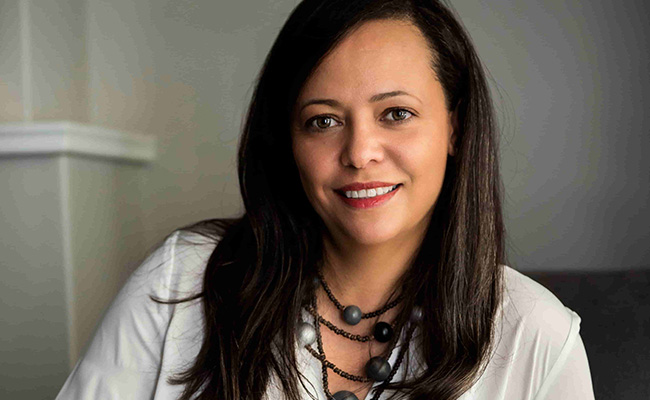At the end of this month, the monetary policy committee of the South African Reserve Bank (SARB) meets, and borrowers hoping for an interest rate cut to ease the repayments on their home loans, car loans and credit cards will be watching closely.
There is clearly room for a rate cut. With inflation averaging 2.95% so far in 2025, below the Bank’s own projections, there is clearly room for a 25 basis-point cut, since there is so little upward pressure on prices.
There is, however, a counterargument for the six-member committee headed by Lesetja Kganyago to hold steady, given the uncertainties caused by US President Donald Trump’s trade wars.
The July 31 meeting comes as the 59-year-old SARB governor is advocating for a shift in the nation’s inflation target, with serious implications for interest rates. The Bank is working with National Treasury on the first change to South Africa’s inflation-targeting regime since it was introduced 25 years ago.
In May, the SARB released a working paper outlining a scenario in which 3% inflation becomes the new goal, rather than 4.5%, which was the midpoint of its 3%-6% range. Lowering the target could bring interest rates down to below 6% by 2027, rather than having them hover at about 7%.
That’s good news for households and businesses managing debt; less so for savers relying on interest earned to sustain themselves.
In the longer-term, you can expect cash savings to yield lower returns if the inflation rate is lower. So this means savers will need to reassess their options – looking at a mix of traditional and alternative investments, from equities and bonds to offshore exchange traded funds (ETFs). For those with a higher risk tolerance, cryptocurrency may also have a role to play as a small part of a broader diversified portfolio.
Beyond pensions and savings
Since Kganyago began cutting rates in September 2024, the SARB has lowered the repo rate by 100 basis points to 7.25% now. Yet, while official inflation sits below 3%, the real cost of living for many South Africans – factoring in municipal tariffs, school fees and health care – is rising much faster.
That’s why relying only on savings accounts is no longer enough to preserve purchasing power. Diversifying your investments is essential not just for the wealthy, but for anyone looking to build long-term financial resilience.
Here, alternative assets, such as cryptocurrency, have a role to play. While crypto was once seen as speculative or niche, it is now a recognised, albeit higher-risk, component in many balanced portfolios.
Not as a replacement for pensions or bank products, but as a complement to them.
Global investment figures indicate that large retirement fund managers and family offices typically allocate between 1% and 5% of their portfolios to crypto assets. Veteran investors like Ray Dalio hold small allocations, treating crypto as a hedge against inflation and risks associated with fiat currency.
Some advisers, such as Ric Edelman in the US, argue for higher allocations – from 10% to 40% – but most South African financial planners would agree: start small and invest cautiously.
The key isn’t to go all in. It’s to understand the role crypto can play alongside equities, bonds and real estate in spreading risk across different asset classes.
Thinking long term
When approached responsibly and with a focus on safety, crypto offers South Africans another way to think about their financial future.
It’s essential to invest only what you can afford to lose, to diversify your portfolio, and to use reputable financial services providers.
Alongside other tools, crypto can be used to build a more flexible and future-proof financial plan. A strong strategy spreads your risk across a range of asset classes. You still need to focus on the basics, such as building emergency savings and ensuring all your other financial obligations are in place.
Crypto is not typically part of traditional retirement planning, but some investors with higher risk tolerance include small allocations as a long-term diversification tool.
While highly volatile, some investors believe crypto can provide long-term potential when approached with the proper knowledge, time horizon and risk appetite.
Crypto is one of the more visible examples, but it is part of a broader shift towards building more adaptable and diversified portfolios. This includes examining offshore investments, ETFs and alternative assets.
Getting started is easier than it used to be, but investors should prioritise education and caution before committing funds – and seek professional advice where possible.
If your savings are earning less, your options don’t end there. You can diversify and build in new ways.
Moments like these serve as reminders that no single strategy lasts forever. When interest rates fall, savers should reassess whether their current approach remains aligned with their goals.
Economic shifts like this one tend to fade into the background. But they shouldn’t. They offer rare moments to pause, reflect and take action.
We’re no longer in a world where financial tools belong only to experts or insiders. And the changing interest rate environment may be the right moment to start.
Hannes Wessels is the general manager of Binance South Africa, where he leads the company’s business operations.
Disclaimer: The information provided herein is for informational and educational purposes only and does not constitute financial advice, investment advice, or any other form of advice regulated under the South African Financial Advisory and Intermediary Services (FAIS) Act, 2002. No part of this communication should be construed as a recommendation, solicitation, or offer to buy or sell any financial product or service.
Top image: Rawpixel/Currency collages.
Sign up to Currency’s weekly newsletters to receive your own bulletin of weekday news and weekend treats. Register here.















Absolutely terrible advice.